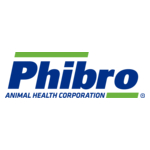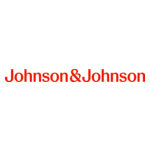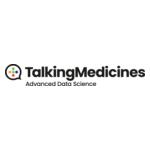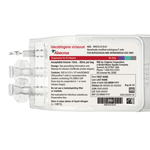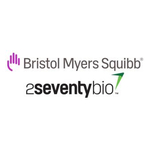- SELARSDI is approved for both adult and pediatric indications and is the second biosimilar approved under the strategic partnership between Alvotech and Teva
- SELARSDI is expected to be marketed in the U.S. on or after February 21, 2025, following a settlement agreement with Johnson & Johnson, the manufacturer of Stelara
- SELARSDI was developed and is manufactured by Alvotech using murine cell (Sp2/0) and a continuous perfusion process, which are the same type of cells and process used for the production of Stelara
REYKJAVIK, Iceland & PARSIPPANY, N.J. — (BUSINESS WIRE) — Alvotech (NASDAQ: ALVO) and Teva Pharmaceuticals, a U.S. affiliate of Teva Pharmaceutical Industries Ltd. (NYSE and TASE: TEVA), on Wednesday announced that the U.S. Food and Drug Administration (FDA) has approved SELARSDI (ustekinumab-aekn) injection for subcutaneous use, as a biosimilar to Stelara, for the treatment of moderate to severe plaque psoriasis and for active psoriatic arthritis in adults and pediatric patients 6 years and older. Under the strategic partnership between Teva and Alvotech, Teva is responsible for the exclusive commercialization of SELARSDI in the United States.
“The approval of SELARSDI – which is our second biosimilar approval this year – underscores Teva’s commitment to expanding the availability, access and uptake of this important treatment option to patients in the U.S.,” said Thomas Rainey, Senior Vice President, U.S. Market Access at Teva. “The biosimilars market is growing, both globally and in the U.S., and biosimilars are a key component of delivering on Teva’s Pivot to Growth strategy. The partnership model that we’ve established enables us to leverage our commercial presence and experiences globally as we move to bring additional biosimilars to market.”
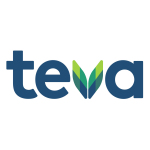
Robert Wessman, Chairman and CEO of Alvotech, added, “We are delighted to announce our second biosimilar approval in the U.S., which is the thirty-eighth approved market for our biosimilar to Stelara globally. Bringing SELARSDI to market in the U.S. early next year presents a significant opportunity to improve patient access to a vital biologic in inflammatory disease and contribute to the reduction of inflationary pressure in healthcare costs. The development of SELARSDI leveraged our purpose-built end-to-end development and manufacturing platform for biosimilars. Being able to develop the biosimilar in the same cell type and continuous perfusion process as was used for the reference product, facilitated the development program’s success.”
Ustekinumab is a human monoclonal antibody (mAb) that selectively targets the p40 protein, a component common to both interleukin (IL)-12 and IL-23 cytokines, which play crucial roles in treating immune-mediated diseases like psoriasis and psoriatic arthritis. Alvotech developed and produces SELARSDI using Sp2/0 cells and a continuous perfusion process, which are the same type of host cell line and process used in the production of Stelara.
Sales of the reference product Stelara in the U.S. were nearly $7 billion in 2023.1 The availability of a Stelara biosimilar will create opportunities for cost savings across the healthcare system and introduce additional treatment options for patients. In the U.S., plaque psoriasis is the most common form of psoriasis while psoriatic arthritis accounts for approximately six percent of all cases of juvenile arthritis.2,3
In June 2023, Alvotech and Teva announced that they had reached a settlement and license agreement with the manufacturer of the reference biologic, Johnson & Johnson, granting a license entry date for SELARSDI in the United States no later than Feb. 21, 2025.
In August 2020, Alvotech and Teva entered into a strategic partnership for the exclusive commercialization of five of Alvotech’s biosimilar product candidates, and in August 2023, the collaboration was extended to include two additional biosimilars and new presentations of two previously partnered products. Alvotech handles development and manufacturing, while Teva is responsible for the exclusive commercialization in the U.S., which leverages Teva’s experience and extensive sales and marketing infrastructure. SELARSDI is the second biosimilar approved under the strategic partnership: in Feb. 2024, the FDA approved SIMLANDI®, the first high-concentration, citrate-free biosimilar to Humira that has been granted an interchangeability status by the FDA.
The FDA approval of SELARSDI, referred to as AVT04 during development, was based on a totality of evidence, including analytical and clinical data. The clinical development program included data from: 1) Study AVT04-GL-301, a randomized, double blind, multicenter, 52-week study to demonstrate equivalent efficacy and to compare safety and immunogenicity between SELARSDI and the reference product Stelara in patients with moderate to severe chronic plaque-type psoriasis. The study was conducted in four countries in Europe and enrolled 581 patients. The primary efficacy endpoint was Psoriasis Area and Severity Index (PASI) percent improvement from Baseline to Week 12; 2) Study AVT04-GL-101, a Phase I, randomized, double-blind, single-dose, parallel-group, 3-arm study to compare the pharmacokinetic, safety, tolerability, and immunogenicity profiles of SELARSDI, administered as a single 45mg/0.5mL subcutaneous injection with that of the US-licensed Stelara as well as EU-approved Stelara. The study was conducted in Australia and New Zealand and enrolled 294 healthy adult volunteers.
Use of Trademarks
Stelara® is a registered trademark of Johnson & Johnson.
Humira® is a registered trademark of AbbVie Biotechnology Ltd.
About Alvotech
Alvotech is a biotech company, founded by Robert Wessman, focused solely on the development and manufacture of biosimilar medicines for patients worldwide. Alvotech seeks to be a global leader in the biosimilar space by delivering high quality, cost-effective products, and services, enabled by a fully integrated approach and broad in-house capabilities. Alvotech’s current pipeline includes eight disclosed biosimilar candidates aimed at treating autoimmune disorders, eye disorders, osteoporosis, respiratory disease, and cancer. Alvotech has formed a network of strategic commercial partnerships to provide global reach and leverage local expertise in markets that include the United States, Europe, Japan, China, and other Asian countries and large parts of South America, Africa and the Middle East. Alvotech’s commercial partners include Teva Pharmaceuticals, a US affiliate of Teva Pharmaceutical Industries Ltd. (US), STADA Arzneimittel AG (EU), Fuji Pharma Co., Ltd (Japan), Advanz Pharma (EEA, UK, Switzerland, Canada, Australia and New Zealand), Cipla/Cipla Gulf/Cipla Med Pro (Australia, New Zealand, South Africa/Africa), JAMP Pharma Corporation (Canada), Yangtze River Pharmaceutical (Group) Co., Ltd. (China), DKSH (Taiwan, Hong Kong, Cambodia, Malaysia, Singapore, Indonesia, India, Bangladesh and Pakistan), YAS Holding LLC (Middle East and North Africa), Abdi Ibrahim (Turkey), Kamada Ltd. (Israel), Mega Labs, Stein, Libbs, Tuteur and Saval (Latin America) and Lotus Pharmaceuticals Co., Ltd. (Thailand, Vietnam, Philippines, and South Korea). Each commercial partnership covers a unique set of product(s) and territories. Except as specifically set forth therein, Alvotech disclaims responsibility for the content of periodic filings, disclosures and other reports made available by its partners. For more information, please visit www.alvotech.com. None of the information on the Alvotech website shall be deemed part of this press release.
About Teva
Teva Pharmaceutical Industries Ltd. (NYSE and TASE: TEVA) is a global pharmaceutical leader with a category-defying portfolio, harnessing our generics expertise and stepping up innovation to continue the momentum behind the discovery, delivery, and expanded development of modern medicine. For over 120 years, Teva’s commitment to bettering health has never wavered. Today, the company’s global network of capabilities enables its 37,000 employees across 58 markets to push the boundaries of scientific innovation and deliver quality medicines to help improve health outcomes of millions of patients every day. To learn more about how Teva is all in for better health, visit www.tevapharm.com.
INDICATIONS FOR SELARSDI (ustekinumab-aekn)
SELARSDI is a human interleukin-12 and -23 antagonist indicated for:
- the treatment of adults and pediatric patients 6 years of age and older with moderate to severe plaque psoriasis who are candidates for phototherapy or systemic therapy.
- the treatment of adults and pediatric patients 6 years of age and older with active psoriatic arthritis.
IMPORTANT SAFETY INFORMATION
SELARSDI injection is contraindicated in patients with clinically significant hypersensitivity to ustekinumab products or to any of the excipients in SELARSDI.
Infections
Ustekinumab products may increase the risk of infections and reactivation of latent infections. Serious bacterial, mycobacterial, fungal, and viral infections were observed in patients receiving ustekinumab products. Serious infections requiring hospitalization, or otherwise clinically significant infections, reported in clinical trials included the following:
- Plague psoriasis: diverticulitis, cellulitis, pneumonia, appendicitis, cholecystitis, sepsis, osteomyelitis, viral infections, gastroenteritis, and urinary tract infections.
- Psoriatic arthritis: cholecystitis.
Avoid initiating treatment with SELARSDI in patients with a clinically important active infection until the infection resolves or is adequately treated. Consider the risks and benefits of treatment prior to initiating use of SELARSDI in patients with a chronic infection or a history of recurrent infection.
Instruct patients to seek medical advice if signs or symptoms suggestive of an infection occur while on treatment with SELARSDI and discontinue SELARSDI for serious or clinically significant infections until the infection resolves or is adequately treated.
Theoretical Risk for Vulnerability to Particular Infections
Individuals genetically deficient in IL-12/IL-23 are particularly vulnerable to disseminated infections from mycobacteria (including nontuberculous, environmental mycobacteria), salmonella (including non typhi strains), and Bacillus Calmette-Guerin (BCG) vaccinations. Serious infections and fatal outcomes have been reported in such patients.
It is not known whether patients with pharmacologic blockade of IL-12/IL-23 from treatment with ustekinumab products may be susceptible to these types of infections. Consider appropriate diagnostic testing, (e.g., tissue culture, stool culture as dictated by clinical circumstances).
Pre-Treatment Evaluation of Tuberculosis (TB)
Evaluate patients for tuberculosis prior to initiating treatment with SELARSDI.
Avoid administering SELARSDI to patients with active tuberculosis infection. Initiate treatment of latent tuberculosis before administering SELARSDI. Consider anti-tuberculosis therapy prior to initiation of SELARSDI in patients with a past history of latent or active tuberculosis in whom an adequate course of treatment cannot be confirmed. Closely monitor patients receiving SELARSDI for signs and symptoms of active tuberculosis during and after treatment.
Malignancies
Ustekinumab products are immunosuppressants and may increase the risk of malignancy. Malignancies were reported among patients who received ustekinumab in clinical trials. In rodent models, inhibition of IL-12/IL-23p40 increased the risk of malignancy.
The safety of ustekinumab products has not been evaluated in patients who have a history of malignancy or who have a known malignancy.
There have been post-marketing reports of the rapid appearance of multiple cutaneous squamous cell carcinomas in patients receiving ustekinumab products who had pre-existing risk factors for developing non-melanoma skin cancer. Monitor all patients receiving SELARSDI should be monitored for the appearance of non-melanoma skin cancer. Closely follow patients greater than 60 years of age, those with a medical history of prolonged immunosuppressant therapy and those with a history of PUVA treatment.
Hypersensitivity Reactions
Hypersensitivity reactions, including anaphylaxis and angioedema, have been reported with ustekinumab products. If an anaphylactic or other clinically significant hypersensitivity reaction occurs, institute appropriate therapy and discontinue SELARSDI.
Posterior Reversible Encephalopathy Syndrome (PRES)
Two cases of posterior reversible encephalopathy syndrome (PRES), also known as Reversible Posterior Leukoencephalopathy Syndrome (RPLS), were reported in clinical trials. Cases have also been reported in postmarketing experience in patients with psoriasis and psoriatic arthritis. Clinical presentation included headaches, seizures, confusion, visual disturbances, and imaging changes consistent with PRES a few days to several months after ustekinumab product initiation. A few cases reported latency of a year or longer. Patients recovered with supportive care following withdrawal of ustekinumab products.
Monitor all patients treated with SELARSDI for signs and symptoms of PRES. If PRES is suspected, promptly administer appropriate treatment and discontinue SELARSDI.
Immunizations
Prior to initiating therapy with SELARSDI, patients should receive all age-appropriate immunizations as recommended by current immunization guidelines. Patients being treated with SELARSDI should avoid receiving live vaccines. Avoid administering BCG vaccines during treatment with SELARSDI or for one year prior to initiating treatment or for one year following discontinuation of treatment. Caution is advised when administering live vaccines to household contacts of patients receiving SELARSDI because of the potential risk for shedding from the household contact and transmission to patient.
Non-live vaccinations received during a course of SELARSDI may not elicit an immune response sufficient to prevent disease.
Noninfectious Pneumonia
Cases of interstitial pneumonia, eosinophilic pneumonia, and cryptogenic organizing pneumonia have been reported during post-approval use of ustekinumab products. Clinical presentations included cough, dyspnea, and interstitial infiltrates following one to three doses. Serious outcomes have included respiratory failure and prolonged hospitalization. Patients improved with discontinuation of therapy and in certain cases administration of corticosteroids. If diagnosis is confirmed, discontinue SELARSDI and institute appropriate treatment.
ADVERSE REACTIONS
The following serious adverse reactions are discussed elsewhere in the label:
- Infections
- Malignancies
- Hypersensitivity Reactions
- Posterior Reversible Encephalopathy Syndrome (PRES)
- Noninfectious Pneumonia
To report SUSPECTED ADVERSE REACTIONS, contact Teva Pharmaceuticals at 1-888-483-8279 or FDA at 1-800-FDA-1088 or www.fda.gov/medwatch.
Please click here for full Prescribing Information for SELARSDI.
ALVOTECH Forward Looking Statements
Certain statements in this communication may be considered “forward-looking statements” within the meaning of the Private Securities Litigation Reform Act of 1995, as amended. Forward-looking statements generally relate to future events or the future financial operating performance of Alvotech and may include, for example, Alvotech’s expectations regarding competitive advantages, business prospects and opportunities including pipeline product development, future plans and intentions, results, level of activities, performance, goals or achievements or other future events, regulatory submissions, review and interactions, the potential approval and commercial launch of its product candidates, the timing of regulatory approval, and market launches. In some cases, you can identify forward-looking statements by terminology such as “may”, “should”, “expect”, “intend”, “will”, “estimate”, “anticipate”, “believe”, “predict”, “potential”, “aim” or “continue”, or the negatives of these terms or variations of them or similar terminology. Such forward-looking statements are subject to risks, uncertainties, and other factors which could cause actual results to differ materially from those expressed or implied by such forward-looking statements. These forward-looking statements are based upon estimates and assumptions that, while considered reasonable by Alvotech and its management, are inherently uncertain and are inherently subject to risks, variability, and contingencies, many of which are beyond Alvotech’s control. Factors that may cause actual results to differ materially from current expectations include, but are not limited to: (1) the ability to raise substantial additional funding, which may not be available on acceptable terms or at all; (2) the ability to maintain stock exchange listing standards; (3) changes in applicable laws or regulations; (4) the possibility that Alvotech may be adversely affected by other economic, business, and/or competitive factors; (5) Alvotech’s estimates of expenses and profitability; (6) Alvotech’s ability to develop, manufacture and commercialize the products and product candidates in its pipeline; (7) actions of regulatory authorities, which may affect the initiation, timing and progress of clinical studies or future regulatory approvals or marketing authorizations; (8) the ability of Alvotech or its partners to respond to inspection findings and resolve deficiencies to the satisfaction of the regulators; (9) the ability of Alvotech or its partners to enroll and retain patients in clinical studies; (10) the ability of Alvotech or its partners to gain approval from regulators for planned clinical studies, study plans or sites; (11) the ability of Alvotech’s partners to conduct, supervise and monitor existing and potential future clinical studies, which may impact development timelines and plans; (12) Alvotech’s ability to obtain and maintain regulatory approval or authorizations of its products, including the timing or likelihood of expansion into additional markets or geographies; (13) the success of Alvotech’s current and future collaborations, joint ventures, partnerships or licensing arrangements; (14) Alvotech’s ability, and that of its commercial partners, to execute their commercialization strategy for approved products; (15) Alvotech’s ability to manufacture sufficient commercial supply of its approved products; (16) the outcome of ongoing and future litigation regarding Alvotech’s products and product candidates; (17) the impact of worsening macroeconomic conditions, including rising inflation and interest rates and general market conditions, conflicts in Ukraine, the Middle East and other global geopolitical tension, on the Company’s business, financial position, strategy and anticipated milestones; and (18) other risks and uncertainties set forth in the sections entitled “Risk Factors” and “Cautionary Note Regarding Forward-Looking Statements” in documents that Alvotech may from time to time file or furnish with the SEC. There may be additional risks that Alvotech does not presently know or that Alvotech currently believes are immaterial that could also cause actual results to differ from those contained in the forward-looking statements. Nothing in this communication should be regarded as a representation by any person that the forward-looking statements set forth herein will be achieved or that any of the contemplated results of such forward-looking statements will be achieved. You should not place undue reliance on forward-looking statements, which speak only as of the date they are made. Alvotech does not undertake any duty to update these forward-looking statements or to inform the recipient of any matters of which any of them becomes aware of which may affect any matter referred to in this communication. Alvotech disclaims any and all liability for any loss or damage (whether foreseeable or not) suffered or incurred by any person or entity as a result of anything contained or omitted from this communication and such liability is expressly disclaimed. The recipient agrees that it shall not seek to sue or otherwise hold Alvotech or any of its directors, officers, employees, affiliates, agents, advisors, or representatives liable in any respect for the provision of this communication, the information contained in this communication, or the omission of any information from this communication.
TEVA Cautionary Note Regarding Forward Looking Statements
This press release contains forward-looking statements within the meaning of the Private Securities Litigation Reform Act of 1995, which are based on management’s current beliefs and expectations and are subject to substantial risks and uncertainties, both known and unknown, that could cause our future results, performance or achievements to differ significantly from that expressed or implied by such forward-looking statements. You can identify these forward-looking statements by the use of words such as “should,” “expect,” “anticipate,” “estimate,” “target,” “may,” “project,” “guidance,” “intend,” “plan,” “believe” and other words and terms of similar meaning and expression in connection with any discussion of future operating or financial performance. Important factors that could cause or contribute to such differences include risks relating to: our strategic partnership with Alvotech; our ability to successfully commercialize SELARSDI in the U.S.; our ability to successfully commercialize SIMLANDI in the U.S; our ability to commercialize the additional biosimilar product candidates under the strategic partnership with Alvotech once U.S. regulatory approval is obtained; our ability to successfully compete in the marketplace including our ability to develop and commercialize additional pharmaceutical products; our ability to successfully execute our Pivot to Growth strategy, including to expand our innovative and biosimilar medicines pipeline and profitably commercialize the innovative medicines and biosimilar portfolio, whether organically or through business development, and to sustain and focus our portfolio of generics medicines; and other factors discussed in this press release, and in our Annual Report on Form 10-K for the year ended December 31, 2023, including in the sections captioned “Risk Factors.” Forward-looking statements speak only as of the date on which they are made, and we assume no obligation to update or revise any forward-looking statements or other information contained herein, whether as a result of new information, future events or otherwise. You are cautioned not to put undue reliance on these forward-looking statements.i
1 Johnson and Johnson Full-Year and Fourth Quarter 2023 Financial Results: https://www.investor.jnj.com/news/news-details/2024/Johnson–Johnson-Reports-Q4-and-Full-Year-2023-Results/default.aspx.
2 Psoriasis in Children: Your FAQs. (2021, June 29). Healthline.
3 Philadelphia, T. C. H. of. (2014, August 23). Psoriatic Arthritis in Children.
Contacts
ALVOTECH
Investor Relations and Global Communications
Benedikt Stefansson, Senior Director
alvotech.ir@alvotech.com
TEVA
IR Contacts
Ran Meir
+1 (267) 468-4475
Yael Ashman
+972 (3) 914 8262
Sanjeev Sharma
+1 (973) 658 2700
Media Contacts
Kelley Dougherty
+1 (973) 832-2810
Yonatan Beker
+1 (973) 264-7378
Eden Klein
+972 (3) 906 2645

